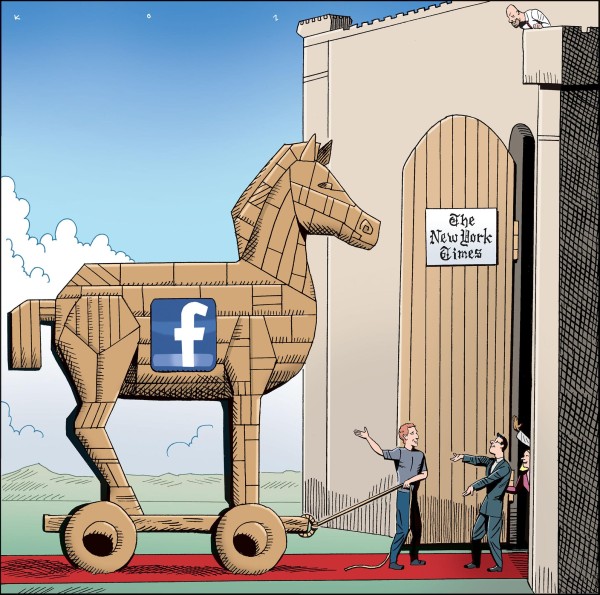Brands
Apple Takes Over the World: 3 Hot Takes From WWDC
1. There are worse things in the world than being number two to Apple.
Let’s start with the big announcement that has many people declaring Spotify dead in the water: Apple Music.
Being perceived as second-best is often cast in a traumatic light, like being left without a lunch table in middle school (hi, Microsoft!), but it’s not the worst thing in the world. Listen, Apple was right yesterday when it declared that the music industry was a fractured mess; there are too many streaming music services competing against each other. Even before today, did anyone think that Rdio was going to be a successful business in five years? When was the last time you even thought about Rdio before reading the last sentence?
Apple Music will spark a great consolidation of streaming music platforms. Someone—probably Spotify—will emerge as the popular alternative to Apple Music, the music streaming equivalent of Microsoft or Android. And given the alternatives, that’s not so bad! Some companies will close; others will be acquired; and a couple will hold on thanks to niche support in Brooklyn and Portland after boldly integrating with transistor radios.
2. We might be seeing Apple’s best branding move to date.
Privacy was a point of emphasis at Apple WWDC, fitting neatly into the feel-good narrative of ethics in the Tim Cook era. But it was also about branding. Apple’s incredibly strict and straightforward privacy policies are becoming a marketing asset—in many ways, it’s the biggest difference between Apple and its competitors, as Cook noted in a speech for the Electronic Privacy Information Center (EPIC) last week:
“Our privacy is being attacked on multiple fronts. I’m speaking to you from Silicon Valley, where some of the most prominent and successful companies have built their businesses by lulling their customers into complacency about their personal information. They’re gobbling up everything they can learn about you and trying to monetize it. We think that’s wrong. And it’s not the kind of company that Apple wants to be.”
But people don’t give a crap about privacy, you say. Study after study shows that people are pretty disgusted when presented with the data practices being used by Google, Facebook, and other Silicon Valley giants. However, the vast majority of people fall into two groups: Either they don’t know what Google, Facebook, Amazon, et al. are doing (most people), or they know but are too lazy to do anything about it (me!). It takes a lot of effort to rally around an issue that most people don’t care about, but it’s easy to see a tipping point coming in the next five years when anti-privacy concerns become hip and everyone jumps on board, making Apple’s brand look even better in the process.
Of course, that’s also the point when Mark Zuckerberg will drop giant bubble-domes over Silicon Valley, New York, Austin, and Venice Beach, declaring his sovereign rule and sparking a catastrophic series of events that ends with Elon Musk saving the day in a weaponized spacesuit. And Tim Cook will be sad because everyone will forget about how much they like Apple for not selling personal data on the black market.
3. Apple News could be a big deal.
Three weeks ago, a major tech company announced The New York Times and other top pubs would start publishing content straight onto its platform and keep 100 percent of the ad revenue. Everyone freaked out; we even made this cartoon!

Cartoon by Martin Kozlowski
Yesterday, Apple announced something relatively similar: Publishers will be able to post straight to Apple News—a Flipboard-style app which will replace Newsstand—and take 100 percent of the ad revenue if they sell the ads on their own. As with Facebook Instant Articles, publishers will be able to use News to build articles natively for the app with custom fonts, multitouch gestures, and layouts. We’ll have to wait for Apple News to launch with IOS 9 in the fall, but publishers already on board include The Guardian, ESPN, The New York Times, Condé Nast, The Daily Mail, and Hearst. Initially, The New York Times will offer 33 articles a day on the app for free; if it was doing that on Facebook, I’m pretty sure all the hot takes would have literally set Midtown on fire.
Very quickly, we’re seeing a trend of publishers willing to publish on third-party platforms that will drive greater exposure and come with full control of ad revenue. The big question is how long that sweet arrangement will last—and how scorched the media landscape will look if it does.
Image by Jeff ChiuGet better at your job right now.
Read our monthly newsletter to master content marketing. It’s made for marketers, creators, and everyone in between.




